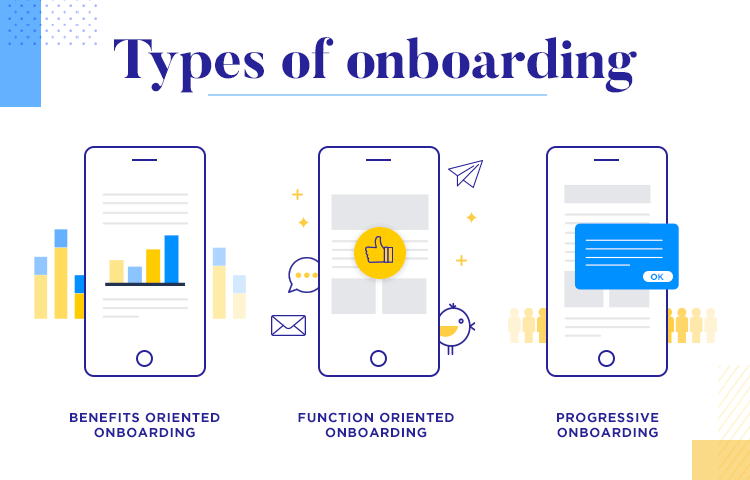App Onboarding: Creating a Seamless User Experience from the Start

Bluetooth Integration: Enhancing Connectivity in Mobile Apps
May 26, 2024
User Feedback: The Key to Improving Your App and Enhancing User Satisfaction
May 26, 2024App Onboarding: Creating a Seamless User Experience from the Start
App onboarding is the process of guiding users through the features and functionality of a mobile application to ensure a smooth and engaging user experience. This article explores the importance of app onboarding, best practices for designing effective onboarding experiences, and examples of successful onboarding strategies.
Thank you for reading this post, don't forget to subscribe!Understanding App Onboarding
App onboarding is the first interaction users have with your app, setting the tone for their overall experience. It aims to familiarize users with the app’s features, functionalities, and navigation, helping them understand how to get the most out of the app from the start. Effective onboarding educates and engages users, reducing abandonment rates and increasing user retention.
Why App Onboarding is Essential
First Impressions Matter
App onboarding sets the stage for users’ initial impressions of your app. A well-designed onboarding experience can captivate users from the outset, increasing the likelihood of continued engagement and retention.
Reduced Friction
Onboarding helps users overcome any initial confusion or uncertainty about how to use the app. By guiding users through the app’s features and functionalities, onboarding reduces friction and frustration, leading to a more positive user experience.
Increased User Engagement
A smooth onboarding process can pique users’ interest and encourage them to explore the app further. By highlighting key features and benefits, onboarding can increase user engagement and drive ongoing usage.
Improved Retention Rates
Effective onboarding can significantly impact user retention rates. By familiarizing users with the app’s value proposition and demonstrating its utility early on, onboarding increases the likelihood that users will continue using the app over time.
Best Practices for App Onboarding
Designing an effective app onboarding experience requires careful consideration of users’ needs and preferences. Here are some best practices for creating a seamless onboarding experience:
Keep it Brief and Clear
Ensure that your onboarding process is concise and easy to understand. Present only essential information and focus on guiding users through the core features and functionalities of the app.
Use Visuals and Interactivity
Incorporate visuals, animations, and interactive elements to make the onboarding process engaging and memorable. Use screenshots, videos, and interactive tutorials to demonstrate how to use key features effectively.
Provide Contextual Guidance
Offer contextual guidance that aligns with users’ goals and motivations. Tailor the onboarding experience to different user segments and provide personalized recommendations based on users’ preferences and behaviors.
Encourage Action
Encourage users to take action during the onboarding process by prompting them to complete specific tasks or explore key features. Use clear calls-to-action (CTAs) and progress indicators to guide users through each step of the onboarding journey.
Offer Incentives
Provide incentives to motivate users to complete the onboarding process and continue using the app. Offer rewards, discounts, or exclusive content to users who complete certain tasks or reach specific milestones during onboarding.
Allow Skip Option
Give users the option to skip the onboarding process if they prefer to explore the app on their own. While onboarding is valuable for new users, some users may prefer to dive straight into the app without guidance.
Collect Feedback
Gather feedback from users about their onboarding experience to identify areas for improvement. Use surveys, user interviews, and analytics data to understand users’ perceptions and preferences and refine the onboarding experience accordingly.
Examples of Successful Onboarding Strategies
Headspace
The meditation app Headspace uses a simple, step-by-step onboarding process to introduce users to its core features and benefits. Through interactive tutorials and guided exercises, Headspace helps users understand how to incorporate mindfulness practices into their daily routine.
Duolingo
Language learning app Duolingo offers a gamified onboarding experience that makes learning fun and engaging. Through interactive quizzes, progress tracking, and rewards, Duolingo motivates users to continue learning and mastering new languages.
Social media platform Instagram provides a seamless onboarding experience that encourages users to explore its various features, such as posting photos, following friends, and discovering new content. With clear instructions and intuitive design, Instagram makes it easy for new users to get started and connect with others.
Conclusion
App onboarding is a critical component of creating a positive and engaging user experience. By guiding users through the app’s features and functionalities in a clear and engaging manner, onboarding sets the stage for continued engagement and retention. By following best practices and drawing inspiration from successful onboarding strategies, app developers can create onboarding experiences that captivate users from the start and drive long-term success. Embrace the power of app onboarding to create a seamless user experience that keeps users coming back for more.
For more information: www.ecbinternational.com


